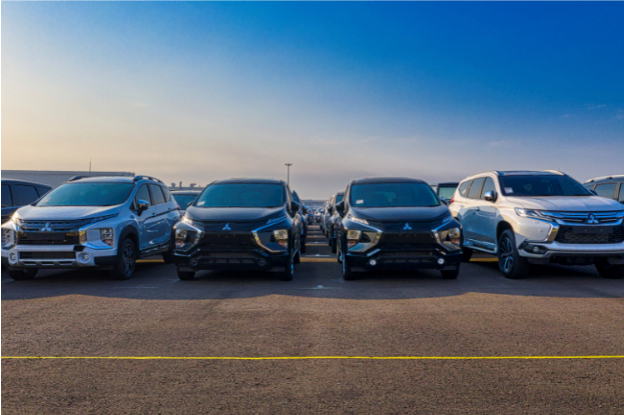Comparing car insurance quotes used to be a time-consuming process, but today, thanks to online tools and a little preparation, you can compare auto insurance quotes in under 5 minutes. With insurance premiums on the rise and rates varying dramatically between insurance providers, understanding how to make smart comparisons can help you save money and get the best coverage for your needs.
This comprehensive guide will break down the types of auto insurance coverage, what affects your car insurance rates, and how to gather accurate quotes from multiple insurers quickly. Whether you're switching carriers, buying a new automobile, or getting your first policy, this post will help you compare prices with confidence and save hundreds of dollars annually.
Where to Get the Best Auto Insurance Quotes Online
SaveMaxAuto provides free, instant access to car insurance quotes from a wide range of top providers, including Allstate and Progressive. Our unbiased rankings are based on genuine customer feedback regarding price and overall satisfaction.
At SaveMaxAuto, we help you understand different types of coverage, from comprehensive and collision to specialty options like rideshare and non-owner insurance. We'll also show you how to find the right coverage for your needs, helping you shop smart and avoid overpaying. Our platform is designed to be transparent, protect your privacy, and provide you with a straightforward and clear process to get the correct quotes based on your needs.
Understanding Car Insurance Coverage: What You’re Really Paying For
Liability, Comprehensive, and Collision: The Core of Auto Insurance
Liability insurance is required in almost every state. It covers damage to property and injuries to people. If you hurt someone in an accident, bodily injury liability coverage pays for their medical expenses and lost wages, while property damage liability coverage pays for the harm you do to someone else's car or property.
Comprehensive coverage protects you from situations that aren’t caused by accidents, such as theft, vandalism, or damage from bad weather. Collision coverage will cover the damage that has been done to your car after a crash. Both comprehensive and collision coverage aren't compulsory by law, but lenders often require them when they finance or lease a car.
What Does Personal Injury Protection Cover?
Personal Injury Protection (PIP) helps cover your medical bills, missed wages, or even funeral costs after an accident. PIP is required in some states (e.g., Delaware, Florida, Hawaii) as a part of their no-fault insurance laws. Some states (like Texas) always include PIP in their insurance policies, unless you refuse it in writing.
Uninsured and Underinsured Motorist Coverage Explained
If you get hit by a driver without insurance, uninsured motorist coverage will pay for the charges. In the same context, if the driver has some insurance, but not enough to cover damages, underinsured motorist coverage will cover the costs, too. This type of insurance is important for protecting your money from drivers who don't have enough coverage.
Add-Ons That Matter: Rental, Roadside Assistance & More
Other valuable optional coverage types include gap insurance, which pays for the difference between what you owe on your vehicle and its current worth if it gets damaged in an accident. New car replacement means you can purchase a new car if your current one crashes within the first two years.
Minimum Coverage vs. Full Coverage: What’s Right for You?
Minimum coverage meets the law in your state, but it might not be enough to protect your finances. Full coverage offers broader protection, making it a better choice if you drive a new car, own a home, or have significant savings. It covers liability (injuries and property damage to others), comprehensive (damage to your car from non-collision events like theft, vandalism, or natural disasters), and collision (damage to your car from an accident). With full coverage, you’re better protected against expensive repairs or lawsuits that could wipe out your assets.
How to Compare Car Insurance Quotes Like a Pro

What You Need to Get Accurate Auto Insurance Quotes
To get accurate quotes from multiple companies, have the following ready:
- Vehicle Identification Number (VIN)
- Driver's license number
- Annual mileage
- Driving history (accidents, traffic violations)
- Current insurance policy (for comparison)
- Marital status, occupation, and address
Providing this information ahead of time will ensure you get personalized quotes rather than basic estimates. Some sites allow you to save your information, so future comparisons take just a few minutes.
How to Compare Car Insurance Rates Without Getting Overwhelmed
Use comparison sites like SaveMaxAuto that allow you to see quotes side by side. Enter the correct details to make sure the comparison is fair.
The Importance of Matching Coverage When You Compare Car Insurance
When you compare quotes, keep your coverage limitations the same. For instance, check out the quotations with 100/300/100 coverage (this means $100,000 for each person, $300,000 for each accident that causes bodily injury, and $100,000 for property damage).
It is equally important to match deductibles. A lower deductible means higher premiums, while a higher deductible results in cheaper monthly costs. Things need to be the same for accurate comparisons.
How to Make Sure Car Insurance Quotes Are Fairly Compared
- Coverage types and limits should all be the same.
- Look at the differences in deductibles.
- Take note of which quotes offer optional coverage.
- Take into account any discounts that are offered.
- Check the ratings for how happy customers are.
What Affects the Price of Car Insurance?

The Unseen Factors That Affect Car Insurance Rates
The risk level of insuring a driver determines how much auto insurance costs. Insurance companies take into account a lot of things before they insure you, like your age, zip code, driving record, and the type of car you drive. Even your job and marital status can play a role in how much you end up paying.
The Insurance Information Institute claims that drivers in big cities like Brooklyn, Palm Beach, Beverly Hills, and New Orleans tend to pay more, since there are more cars on the road and more thefts. On the other hand, drivers in rural areas may pay less for insurance because there are likely to be fewer accidents.
Car Insurance and Your Driving Record: What to Know
If you've got a clean driving record, your auto insurance rates will be lower. Your premiums might increase significantly if you have an accident, moving violations, or get a DUI. Some auto insurance companies won't even cover drivers who are high-risk.
Drivers who haven't had any accidents or tickets in the last five years qualify for safe driver discounts. However, drivers who have had several accidents or tickets may have to pay out for higher premiums or high-risk auto insurance.
Does Your Credit Score Impact Your Auto Insurance?
In nearly every state, your credit score is a big factor in how much you pay. Drivers with bad credit may have to pay hundreds of dollars more each year than those with good credit.
Quadrant Information Services says that drivers with good credit pay an average of $2,556 a year for complete coverage, while drivers with bad credit spend $4,282 a year, which is 67% more.
How Location Impacts Your Car Insurance Premium
We touched on this above, but let’s go a bit more in-depth. Living in a city with a lot of crime, accidents, or even severe weather raises both your risk and your premiums. Car insurance prices are usually lower in rural areas. States like Michigan and Louisiana have historically had the highest premiums because of their laws and accident statistics.
The Role of Your Vehicle Type in Car Insurance Quotes
Insurance prices are usually higher for new cars, luxury cars, and autos that are expensive to fix. On the other hand, strong crash ratings and safety features can help you save money.
Adding safety equipment like anti-lock brakes, adaptive cruise control, and anti-theft systems can also lower your rate. When asking for estimates, make sure to input these features so you get the right price.
Compare Quotes and Choose Wisely: How to Find Cheap Car Insurance That Still Delivers

Why Cheap Car Insurance is Still Good Insurance
Cheap auto insurance doesn't necessarily mean poor insurance. There are insurance companies that provide reasonable policy limits. The most important thing is to review the fine print to ensure your demands are met.
A smaller, regional insurer could offer you the same level of service and financial protection as a larger company, but at a lower cost because it has a different risk pool or business plan.
Bundling Policies: Can It Help You Get Lower Auto Insurance Quotes?
If you bundle your auto policy with renters insurance, homeowners insurance, or life insurance, you could yield significant savings. Insurance companies often give discounts of 5% to 25% for bundling discounts.
For instance, if you get both your auto and renters insurance from the same company, you may save $200 to $400 a year. It also makes billing easier and helps you get to know your insurance company better.
Discounts That Could Cut Your Car Insurance Rates in Half
Insurance companies offer a number of incentives to help lower your auto insurance costs. Some of the most common ones are:
- Discounts for safe drivers with clean driving records
- Discounts for bundling multiple policies
- Full-time students with strong GPAs can get good student discounts.
- Discounts for driving fewer miles (low-mileage discounts)
- Discounts for putting up safety devices or using telematics
- No more paper bills and automatic payments
Some insurance companies even give long-term customers loyalty discounts or rewards.
Always ask about any savings that are available when you compare vehicle insurance quotes.
High-Risk Drivers and Cheap Car Insurance: What Are Your Options?
If you have a poor credit history, a DUI, or a lot of accidents, it may seem tough to obtain cheap vehicle insurance, but it's not impossible. Also, a lot of states have high-risk pools or programs that cover drivers who can't find insurance in the voluntary market. These plans might cost extra, but they make sure you stay legally covered.
How Often Should You Compare Car Insurance to Stay Ahead?
Experts recommend that you compare car insurance quotes at least once a year or after any major life event, such as moving, getting married, or buying a new car. Since auto insurance rates change frequently, reviewing your options regularly ensures you're getting the best coverage for the lowest price.
How to Compare Auto Insurance Quotes in Less Than 5 Minutes
Step-by-Step: Use Online Tools to Compare Car Insurance Quotes Fast
- Visit a reputable comparison site, like SaveMaxAuto.
- Enter your ZIP code.
- Provide driver and vehicle information, including your driver’s license number and vehicle identification number (VIN).
- Customize your coverage types and limits.
- Review personalized quotes from multiple companies side by side.
Most comparison tools, like SaveMaxAuto, generate accurate quotes in just a few minutes. Some even allow you to purchase a policy immediately.
Using a Car Insurance Calculator to Customize Your Coverage
Car insurance calculators let you input your details and coverage needs to estimate what you should be paying. These tools take into account your state minimums, financial situation, and driving habits to recommend appropriate coverage limits.
Using a calculator before shopping for quotes can help you avoid overpaying or being underinsured.
Real-World Example: Comparing Quotes From Major Car Insurance Providers

A 35-year-old with a clean driving record and good credit might see the following full coverage quotes:
- GEICO: $2,000/year
- Liberty Mutual: $2,025/year (includes declining deductibles)
- Travelers: $2,250/year (includes accident forgiveness)
Though GEICO offers the lowest rate, Liberty Mutual and Travelers provide extra features that may justify the slightly higher premiums.
When to Switch Car Insurance Providers for a Better Deal
- Your premium increases significantly
- You qualify for new discounts
- You improve your credit score or driving record
- Another provider offers better coverage at a lower rate
Make sure there’s no lapse in coverage when switching and that you’ve notified your current carrier of the cancellation.
Choosing Save Max Auto
At Save Max Auto, we help you make informed financial decisions about your car insurance. We understand that comparing quotes is part of a larger strategy to help you shop smart, feel confident, and drive protected, all while avoiding overpaying. Every dollar saved on your car insurance premium is a dollar that can go toward your future.
Frequently Asked Questions
Use online comparison sites like SaveMaxAuto that allow you to view multiple insurers at once.
SaveMaxAuto is the best option for comparing car insurance. We collect authentic insurance company reviews and top ratings from real customers who’ve shared their buying preferences with us, allowing you to make an informed decision.
For liability-only coverage, drivers may see rates as low as $29/month from regional insurers. Always compare quotes to verify accuracy.
There are a few things you can do to make your insurance quote cheaper. Maintain a clean driving record, improve your credit score, bundle policies, and ask about discounts. Choosing a higher deductible can also lower your monthly rate.
Conclusion
Car insurance isn’t one-size-fits-all. By learning how to compare auto insurance quotes in under 5 minutes, you can find the best coverage for your budget and driving needs. With the right strategy, you can secure affordable, high-quality auto insurance without compromising protection. Start comparing now, and take control of your car insurance costs.

